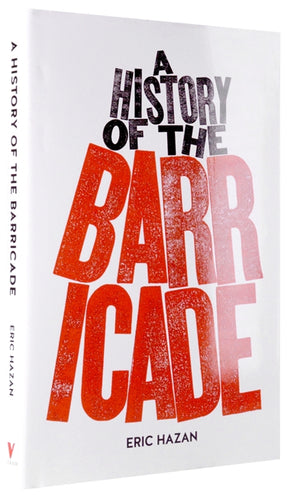Paperback
+ free ebook

+ free ebook
+ free ebook
How the French invented the barricade, and its symbolic impact on popular protests throughout history
In the history of European revolutions, the barricade stands as a glorious emblem. Its symbolic importance arises principally from the barricades of Eric Hazan's native Paris, where they were instrumental in the revolts of the nineteenth century, helping to shape the political life of a continent.
The barricade was always a makeshift construction (the word derives from barrique or barrel), and in working-class districts these ersatz fortifications could spread like wildfire. They doubled as a stage, from which insurgents could harangue soldiers and subvert their allegiance. Their symbolic power persisted into May 1968 and, more recently, the Occupy movements.
Hazan traces the many stages in the barricade's evolution, from the Wars of Religion through to the Paris Commune, drawing on the work of thinkers throughout the periods examined to illustrate and bring to life the violent practicalities of revolutionary uprising.
Hazan's account combines some fine vignettes about particular revolutionary episodes with a telling eye for detail; the maps of the different insurrections are also handy.
Indeed, until I read Eric Hazan's fascinating book, I too used to think that it was only during the French Revolution that the barricade stopped being a purely civilian object,designed primarily "to prevent admittance," like a modern swing-beam-type barrier or a turnstile. I was wrong. I feel like quoting endlessly from this revealing compact book, which, on top of everything else, is beautifully written and no-less beautifully translated. The idea of tracing centuries of tempestuous European history by looking just at one significant engineering object strikes me as brilliant. This little volume will find a prominent place in the 'golden shelf' of my favourite books of all time.
Hazan's short sharp book rises and falls like a battle cry and a keen of mourning both at once (...) For all the twilittonalities of Hazan's book, there is something joyous about it. It affirms that one of the options available to common people, one chosen over and over in the most desolate situations, is fighting back.